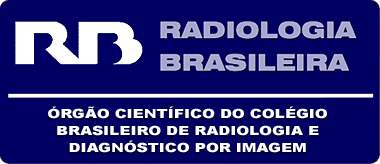The characterization of focal liver lesions is very important. Magnetic resonance imaging is considered the best imaging method for evaluating such lesions, but does not allow for the diagnosis in all cases. The use of hepatobiliary contrast agents increases the diagnostic accuracy of magnetic resonance imaging and reduces the number of non-specific liver lesions. The main indications for the method include: differentiation between focal nodular hyperplasia and adenoma; characterization of hepatocellular carcinomas in cirrhotic patients; detection of small liver metastases; evaluation of biliary anatomy; and characterization of postoperative biliary fistulas. The use of hepatobiliary contrast agents may reduce the need for invasive diagnostic procedures and further investigations with other imaging methods, besides the need for imaging follow-up.
Focal hepatic lesions; Hepatobiliary contrast; Magnetic resonance imaging

 Thumbnail
Thumbnail
 Thumbnail
Thumbnail
 Thumbnail
Thumbnail
 Thumbnail
Thumbnail
 Thumbnail
Thumbnail
 Thumbnail
Thumbnail
 Thumbnail
Thumbnail
 Thumbnail
Thumbnail







